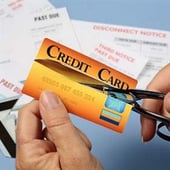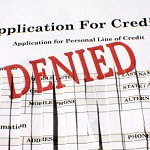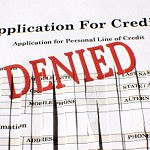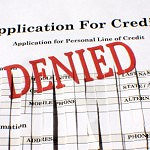
Several years ago, my wife and I faced one of the darkest times of our lives. Although we were in a financial mess, we found a way to work through it.
Hopefully, our story may help someone else.
Here goes...
I never dreamed that I would ever be in a situation where I could not pay my bills!
With a good job that paid me a better than average income and my wife earning a good salary as well, we were living the "good life", until.....
Our lives dramatically changed!
I had been working for the same company for about 10 years, was in charge of a large area of the country, and my sales and sales team usually led the company.
This meant that I was getting a nice bonus each year as well as my large salary!
Like I said, "Life was good!"
Although I had heard the rumors about a possible sale of the company to a larger competitor, I was told "Don't worry, even if this happens, you'll be OK".
Right!
One afternoon, my supervisor called me into his office and I could tell that something was up.
After a few minutes of chit-chat, he finally came out with it and let me know that the sale was going to happen, and that the new company was going to terminate my position and replace me and my team with their own people!
I just stood there...in shock, thinking...
"What was I going to do?"

So, here I was:
- Unemployed (for the first time in my life!)
- Have a mortgage (nice, large home!)
- Family (2 kids, ages 8 and 10)
- A little over 40
- No real job prospects in a bad economy!
I knew I was in trouble and I was starting to panic!
JOB SEARCH, BILLS, and STRESS
I sent out dozens of resumes and went on several interviews, but no luck.
One night, my wife and sat down and completed a "Home Budget Worksheet".
Even though I kinda had an idea of what came in and what went out, I really hadn't ever taken the time to track it carefully.
After all, we were making great money and really had nothing to worry about.
Boy, was I shocked to see the real numbers!
We found out that we were spending a lot of money on things we really didn't have to have, such as:
- Starbucks coffee
- Athletic club membership (that I rarely used)
- Internet and TV Service that included about 1,000 shows and channels we rarely watched!
- Going out to dinner a couple of times a week
- You get the picture...
And then....
The hot water heater stopped working.
The plumber said that there was nothing he could do to repair it as it was just too old.
With our savings just about gone, I had to use one of my credit cards to buy a new one and pay for the installation.
Even though the total was about $1,000, it really only increased my minimum monthly payment by $25 or so.
And the spriral started...
With no one willing to hire me at anywhere close to what I was earning before, I finally had to take a job at just a little over minimum wage.It was better than nothing, but the final take home pay was just not enough to cover everything.
I was really beginning to stress out!

CREDIT CARDS TO THE RESCUE?
We had no choice but to pay only the absolute essential bills like the mortgage, utilities, groceries, etc. and let the credit card bills, medical bills, and yes, even the car payment get behind.
I mean, what else could we do?
Sure, there was a little equity in our home, but with our bad credit rating, we wouldn't qualify for a second mortgage or refinance.
Over time, I had to use the cards to make up the shortage we faced each month.
As the total credit card debt was increasing due to late fees and over-the-limit fees, we had to use a CASH ADVANCE once in a while just to pay a utility bill or buy groceries!
The crazy thing was, even though we hadn't made a payment in 3-4 months, and were getting nasty letters from our creditors, we would still get an OFFER from a credit card company for another card or to consolidate all the others with a BALANCE TRANSFER!
We actually had three cards from one company! Made no sense!
Sure, this "rob Peter to pay Paul" action was holding them off, but we knew that a"day of reckoning was coming!"
DECISION TIME!!!
One evening, after the kids were asleep, we sat down at the kitchen table and took a long, honest look at our situation.
There just wasn't enough money to cover all of our expenses and bills.
It looked like BANKRUPTCY was our only option.
As we discussed this, my wife told me that she had a friend who had gone through a similar financial situation and had prevented choosing bankruptcy by going through a Debt Settlement Program.
I called the company she had used, but after a few minutes talking to the rep on the phone, I just didn't have a good feeling.
It seemed that all he wanted to do was to get us to "sign up" right away and that he really wasn't listening to our particular situation.
Tried the DIY method to negotiate settlements
I tried to contact the debt collectors myself, but soon learned that they did not care about our situation and were not very sympathetic and usually very rude.
Sure, they were willing to settle the account for a little less than the full balance, but they wanted the money in a lump sum!
I lost my temper and told one guy, " You %%#@*&^%, if I had that kind of money, I wouldn't be in this situation!" He seemed as if he could care less.
I was angry and embarrassed!
CHOOSING THE RIGHT DEBT SETTLEMENT COMPANY
After several frustrating attempts like this, I went online and checked out a couple of debt settlement company's Better Business Bureau reports.
There weren't very many that were accredited and had an A+ rating with no complaints!
It was very evident that not all debt settlement companies were the same!
Since they all seemed to offer the same services, we decided to narrow the field by using the following tests....
- Their Better Business Bureau record
- Registration with our proper government divisions
- Examples of actual settlements for their clients
- Positive testimonials from satisfied clients
- They had to REALLY LISTENED AND WERE SYMPATHETIC TO US!
After calling a few, we decided to go with a company that seemed to meet the criteria we wanted.
THE PROCESS
Once we enrolled, the first thing they did was to put a stop to those annoying and basically harassing calls from the collectors!
I can't tell you how great it was to have someone "in our corner" now!
We had stopped sending payments to the creditors (just didn't have the money!)for about the last 3 or 4 months and some of our accounts had already been turned over to a Debt Collector.
We started making monthly deposits (what little we our budget would allow) into an FDIC insured account for future settlements.
This monthly deposit was a little less than half of what the total minimum payments would have been, so this really helped!
Over time, the company was able to settle each of our debts!
Some of them were settled at less than 50%, saving us a lot of money!
I really appreciated the service we received. It helped calm us during the whole process.
Well, it took about 4 years to get all of our debts settled (we had enrolled about $40,000 of various unsecured debts), but it was well worth it.
When we had questions or concerns, we were always able to talk to our representative and/or the negotiator.
Not only did we save thousands of dollars through the settlements, our CREDIT SCORES started to improve!
TODAY
Here we are, still in our home, no creditors calling, all of our credit cards have a $0 balance (we actually cut them all up!) and we FEEL GREAT!
Even though we could have, we are very glad we didn't turn to Bankruptcy Protection.
Hope this has been helpful!
Debt Settlement is not for everyone, but for us, it worked better than we expected:










 BACKGROUND....
BACKGROUND....




